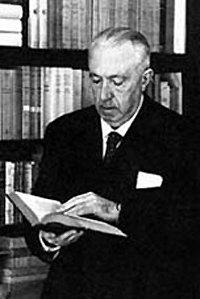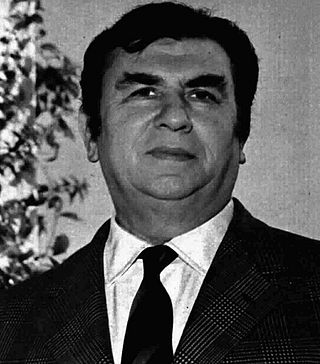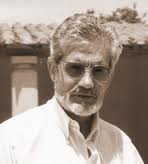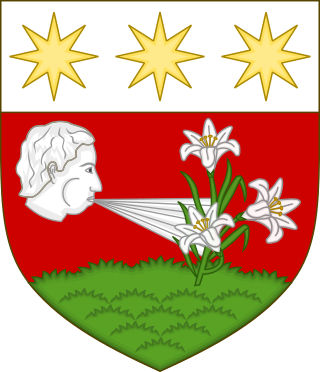
Carlo Emilio Gadda was an Italian writer and poet. He belongs to the tradition of the language innovators, writers who played with the somewhat stiff standard pre-war Italian language, and added elements of dialects, technical jargon and wordplay.

Luigi Cervi, better known as Gino Cervi, was an Italian actor. He was best known for portraying Peppone in a series of comedies based on the character Don Camillo (1952–1965), and police detective Jules Maigret on the television series Le inchieste del commissario Maigret (1964–1972).

Peppino De Filippo was an Italian actor.

Palazzo Braschi is a large Neoclassical palace in Rome, Italy and is located between the Piazza Navona, the Campo de' Fiori, the Corso Vittorio Emanuele II and the Piazza di Pasquino. It presently houses the Museo di Roma, the "Museum of Rome", covering the history of the city in the period from the Middle Ages through the nineteenth century.

The Italian National Olympic Committee, founded in 1914 and a member of the International Olympic Committee (IOC), is responsible for the development and management of sports activity in Italy. Within Italy, CONI recognizes 48 national sports federations, 15 associate sports disciplines, 14 promotional sports organizations, and 19 organizations for the betterment of sports.
Alessandro Cicognini was an Italian composer who is chiefly remembered for his film scores.

Luigi Federzoni was an Italian nationalist and later Fascist politician.

Nando Bruno was an Italian film actor. He appeared in 84 films between 1938 and 1961. He was born in Rome, Italy and he died there.

Giulio Bosetti was an Italian actor and director.
Puccio Pucci was an Italian athlete, lawyer and sports official.

Giuseppe Cobolli Gigli was an Italian engineer and politician. From 1935 to 1939, he was member of Benito Mussolini's Italian fascist government as minister of public works.
Giulio Turcato was an Italian artist, belonging to both figurative and abstract expressionist currents.

Polisportiva S.S. Lazio Rugby 1927, based in Rome, is an Italian rugby union team. They currently play in Top12 after gaining promotion from winning Serie A in the 2009–10 season.

Giulio Angioni was an Italian writer and anthropologist.

The Museo di Roma is a museum in Rome, Italy, part of the network of Roman civic museums. The museum was founded in the Fascist era with the aim of documenting the local history and traditions of the "old Rome" that was rapidly disappearing, but following many donations and acquisitions of works of art is now principally an art museum. The collections initially included 120 water-colours by the nineteenth-century painter Ettore Roesler Franz of Roma sparita, "vanished Rome", later moved to the Museo di Roma in Trastevere.

The House of Braschi is an Italian noble family established in Cesena in the 12th century. The family achieved great notoriety with the election of one of its members, Giannangelo Braschi as Pope of the Catholic Church.
Giulio Bedeschi was an Italian writer and Army officer during World War II, best known for his book Centomila gavette di ghiaccio, one of the most famous memoirs of the Italian campaign in Russia.













